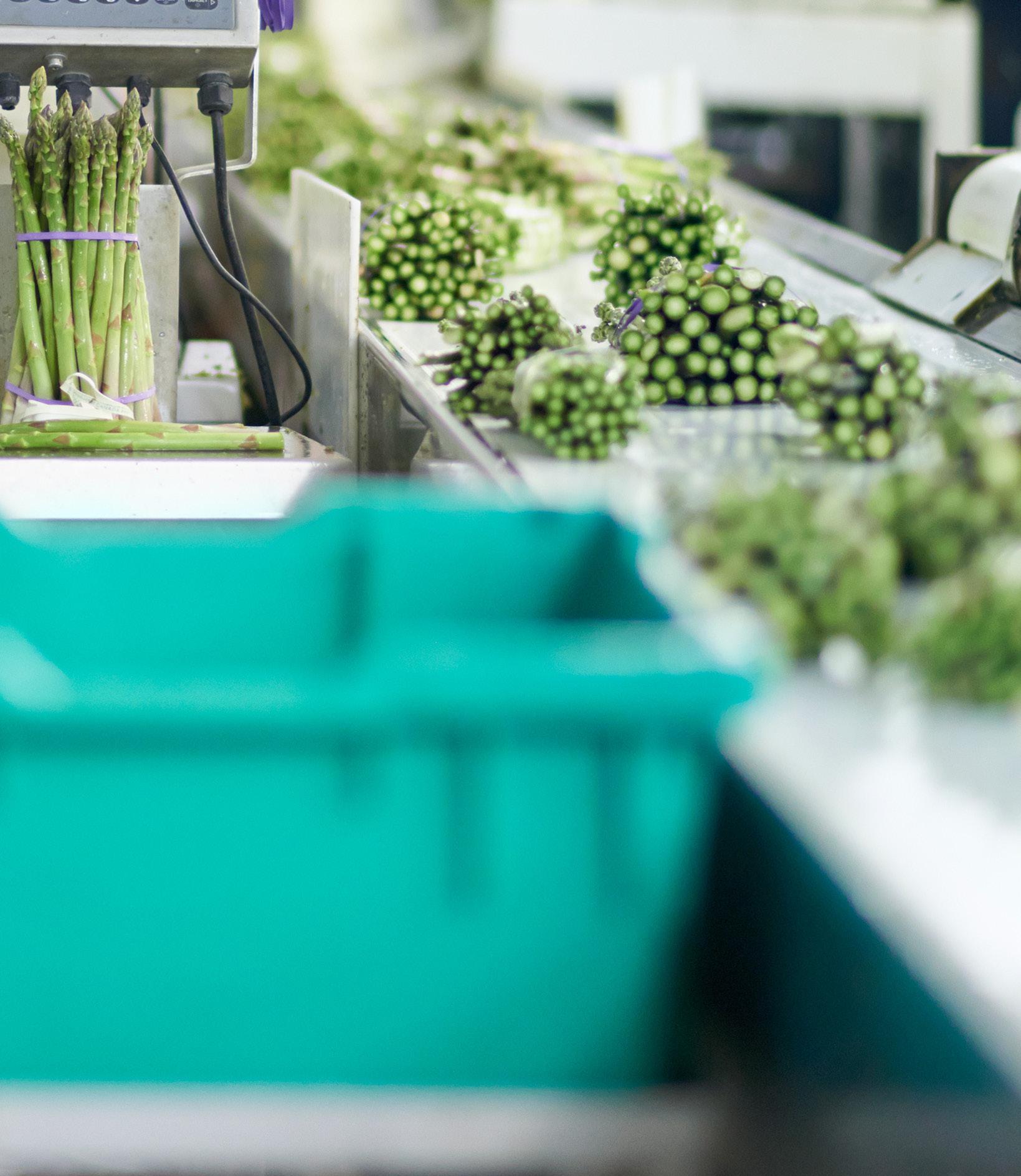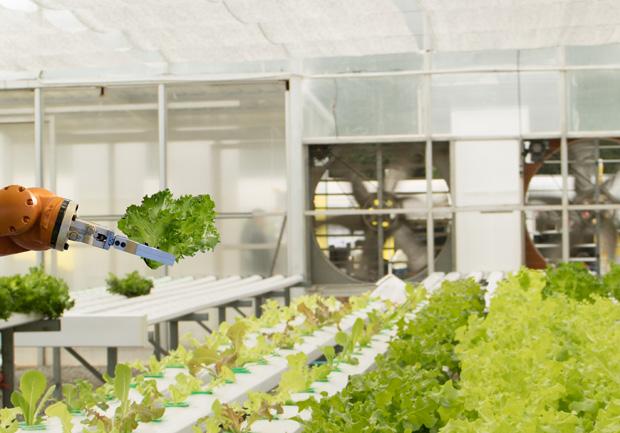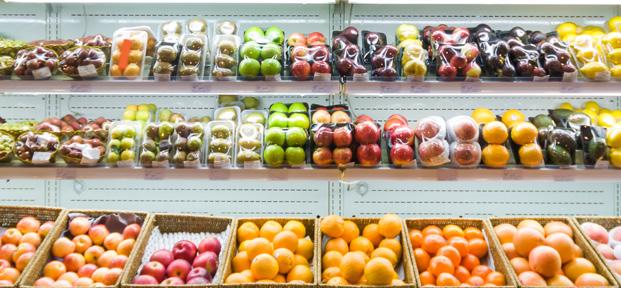
6 minute read
Better for you, better for the planet – food after Covid
Covid-19 has disrupted the food’s sector’s supply chains and is set to change consumer eating habits for good says Mayssa Al Midani, CIIA, Senior Investment Manager of the Pictet-Nutrition fund
Spending an entire day in the fresh air and sunshine, having the freedom to roam in outdoor space of some 108 square feet, and being able to feast on delicious wildflowers in open pastures untouched by pesticides or herbicides. This is the leisurely daily routine that the “girls” – or hens – at Texas-based food company Vital Farms enjoy in return for producing their highly prized eggs. It's a scene you'd expect to come across in a small organic farm, the sort run by a family committed to ethical production. Vital Farms certainly started out that way. But it is now going big. So big in fact that, last year, the ethical food company secured a valuation of USD1.3 billion in one of the sector's most-anticipated initial public offerings.
Advertisement
The food industry will soon be full of companies like Vital.
That's because the firm's success owes much to some powerful trends unleashed by Covid-19. Two stand out. First, food producers are having to re-configure their supply chains after the pandemic disrupted global trade. It's an environment where complex international sourcing and distribution networks are under pressure and under scrutiny.
Second, the food industry now has to cater to the needs of a more demanding customer base - one that cares less about convenience and more about the nutritional and ethical aspects of what it buys and eats.
In a few years, the food industry could look very different, according to members of the Nutrition Strategy Advisory Board. It might consist almost entirely of companies that possess only the strongest social and environmental credentials.
COVID: SHAKEN AND STIRRED
The pandemic has unleashed turmoil across a wide range of industries. Food suffered more than most. Lockdowns and border closures disrupted the distribution of agricultural products and also led to severe labour shortages at food processing facilities. At the same time, Covid-19 triggered a change in consumer behaviour.


A survey by consultancy Accenture conducted during the pandemic found that consumers increasingly prioritised health and sustainability when deciding what to buy.1 In the UK alone, sales of ethical food and drink are forecast to rise by 17 per cent to GBP9.6 billion by 2023, having already grown more than 40 per cent in the five years to 2018.2 In response, the food industry is investing heavily in a wide range of high-tech solutions. Many of which are geared to strengthening supply chains, raising production standards and reducing food waste.
It is perhaps in the meat industry where the pandemicinduced transformation is particularly acute. Slaughterhouses and meat-processing plants found themselves in the frontline of the Covid battle after cluster of virus cases emerged in facilities worldwide. In the US for example, more than 80 beef and pork packing plants in the US reported virus outbreaks between April and June 2020. By mid-May, meat production fell 40 per cent below 2019 levels.3 But keeping facilities safe and virus free isn't the industry's only problem. The pandemic also brought into relief the health and environmental costs associated with meat consumption and production. Studies have shown a strong link between obesity and Covid.4 At the same time, consumers have been reminded of meat's outsized environmental footprint. Livestock farming is responsible for 15 per cent of greenhouse gas emissions and accounts for some 29 per cent of the world’s freshwater use.5
It is for these reasons that Pictet Asset Management’s Advisory Board members expect meat consumption to fall and healthier alternative meats and plant-based diets to become more popular.
Alternative meat producers such as Beyond Meat and Impossible Food have already raised hundreds of millions of dollars in funding in recent years. Their expansion has also seen them seal agreements with major supermarkets and fast food chains to sell their high-margin products. To our Advisory Board members, this represents only one aspect of the meat revolution.
INTERNET OF FOOD THINGS
Another is increased automation. Compared to other parts of the food industry, meat production is very labour intensive. This became a vulnerability during the virus outbreak as plants struggled to remain operational with severely depleted workforces. Many producers now see technology as means to improve their resilience.
The same is true for industries beyond meat. Greater use of automated systems would not only ensure food security and quality, however. It brings the added benefit of more efficient resource use. According to our Advisory Board, the production lines of the future will be built on sensor networks, the Internet of Things and blockchain technology. Other points in the supply chain are also set to make greater use of technology, particularly logistics and distribution.
The public health crisis has also trained a spotlight on food hygiene standards. Unsettled by the rapid spread of the virus, consumers have understandably become concerned at the possibility of food being a transmitter of disease. Technology can help assuage such fears, our Advisory Board members say. The food industry is home to a growing number of specialist companies developing advanced food testing and diagnostics services. Our advisors expect food producers to invest more heavily in sustainable grocery packaging that has antibacterial properties, and make greater use plastic alternatives or other innovative technologies such as QR codes. Interestingly, these products not only improve food safety and reduce the risk of contamination, they are also good for the environment as they can help reduce waste. Waste is one of the food industry's biggest problems. Europe alone wastes an eye-watering 20 per cent of all produced food, worth some EUR143 billion a year.6

TASTE OF THE FUTURE
Faced with a growing world population and climate change, the food industry was already under severe strain even before Covid-19 struck. Looking ahead however, the pandemic could help revitalise it. If food producers and distributors move quickly to deploy advanced technology and innovation to meet growing consumer appetite for food that is healthier and more sustainable, the industry will be fit to meet the demands of the 21st century.
THE PICTET-NUTRITION FUND: INVESTING IN THE FUTURE OF FOOD
• The Pictet-Nutrition fund directs capital to companies which improve sustainability, access, and quality of food necessary for health and growth. The fund invests across the entire food chain, from farm to fork.
• Long-term growth potential: both governments and consumers are demanding higher quality food and improved diets. Therefore, companies enabling better nutrition should benefit from growth.
• Responsible and sustainable approach: companies that provide solutions to increase output with minimal resource use and waste (i.e. lower environmental impact) will be crucial in the shift toward a more sustainable food system.
• A diverse and resilient opportunity set: across several sectors and geographies with different characteristics; supported by strong long-term secular growth tailwinds.
[1] Accenture COVID-19 Consumer Research, conducted March 19–25 and April 2–6, 2020 [2] Includes organic, Fairtrade, Rainforest Alliance and Marine Stewardship Council (MSC) certified product. https://www.mintel. com/press-centre/food-and-drink/eating-with-a-conscienceethical-food-and-drink-sales-hit-8-2-billion-in-2018 [3] COVID-19 Disruptions in the US Meat Supply Chain, Federal Reserve Bank of Kansas City [4] Popkin, BM, Du, S, Green, WD, et al. Individuals with obesity and COVID‐19: A global perspective on the epidemiology and biological relationships. Obesity Reviews. 2020; 21:e13128. https://doi.org/10.1111/ obr.13128 [5] UN Food and Agriculture Organization [6] European Commission
This marketing material is issued by Pictet Asset Management (Europe) S.A. The value and income of any of the securities or financial instruments may fall as well as rise and, as a consequence, investors may receive back less than originally invested. Only the latest version of the fund’s prospectus, KIID (Key Investor Information Document), regulations, annual and semi-annual reports may be relied upon as the basis for investment decisions. These documents are available on assetmanagement.pictet or at Pictet Asset Management (Europe) S.A., 15, avenue J. F. Kennedy, L-1855 Luxembourg.



